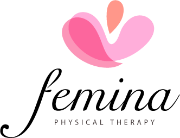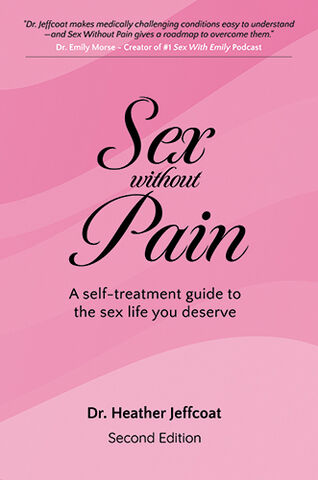
The Femina Physical Therapy Blog
Featuring original articles by our staff about current events and trends
Explore our insightful blog articles on pelvic health, where we delve into essential topics that empower and educate. From understanding pelvic floor disorders to strategies for conquering infertility, our content is designed for those seeking knowledge and support. We discuss the latest research, expert advice, and practical tips to enhance your well-being and foster a deeper connection to your body.
Featured From the Blog:
Treating Bloating and Abdominal Distension: a Multi-Disciplinary Team

Why a Multi-Disciplinary Team is Best for Treating Bloating and Abdominal Distension
Bloating, abdominal distension, loose stools, constipation, abdominal or pelvic pain, fatigue, brain fog, weakness, nutritional deficiencies… these symptoms may be caused by a variety of gastrointestinal or pelvic conditions. If you are experiencing any of these symptoms, this article is a good place to start when deciding who to have on your care team, and what treatments can help!
Restorative 20 Minute Home Yoga Practice For Chronic Pelvic Pain
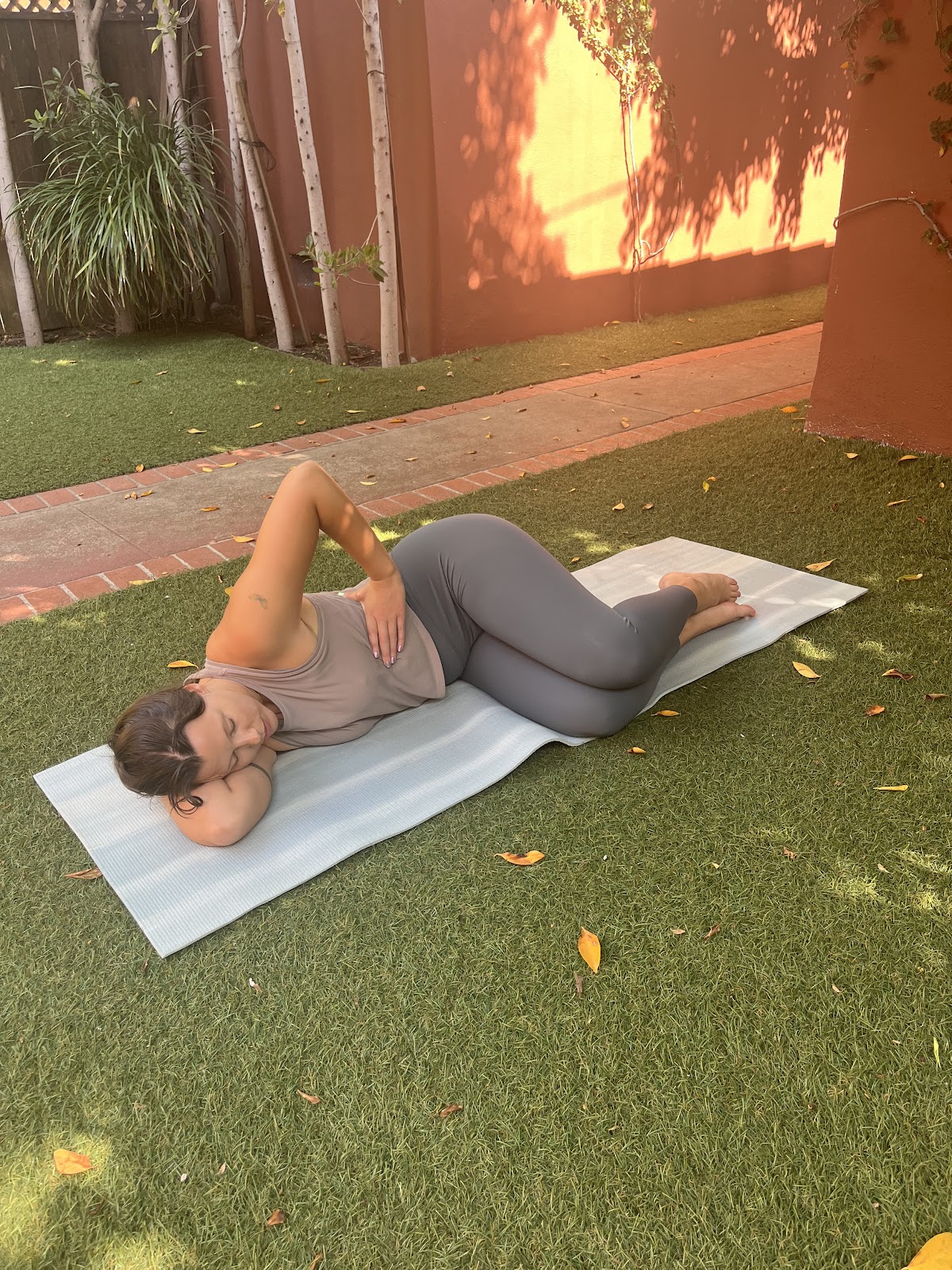
Yoga Practice For Chronic Pelvic Pain Can Be a Very Helpful Routine
As stated in my last blog post, yoga can be so beneficial as a pain management tool due to its ability to modulate the sympathetic nervous system3,4 which plays a large role in chronic pain. The exact mechanism of how yoga helps with chronic pain is still being studied, however, it is reasonable to believe the full body relaxation promoted by a yoga practice helps to decrease tension in key muscle groups- including the hips and pelvic floor which are often tight in people with chronic pelvic pain.
Currently, evidence has mostly focused on one hour long practices as an intervention, although there are some studies that report improvements in pain with shorter practices, such as the routine below. As with any mobility/stretching routine, benefits will be seen with more frequent practice, however even twice weekly can help decrease pain.
Read more: Restorative 20 Minute Home Yoga Practice For Chronic...
Postpartum Sexuality & Mood Changes in Women with Pelvic Girdle Pain

Does my pelvic girdle pain have anything to do with my mood and sexuality?
Many of our patients experience sexual dysfunction and anxiety, depression and chronic pain. These conditions are known to coexist, and we unpack each component of pain, mood and one’s behaviors, desires and attitudes related to sex and physical intimacy.
Pelvic girdle pain is defined as “pain between the posterior iliac crests and gluteal folds particularly in the vicinity of the sacroiliac joint” (Simonds). More simply stated: in the very low area of your back and buttock. Pelvic girdle pain is common postpartum and may impact disability in the fourth trimester. Many are aware of peripartum symptoms such as low back pain, incontinence, pelvic organ prolapse, pain with intercourse, and postpartum depression. Knowing that many women experience pain during and after pregnancy - what can we learn about the effects of pelvic girdle pain? Specifically, what impact does pelvic girdle pain have on symptoms of mood and sexuality?
Read more: Postpartum Sexuality & Mood Changes in Women with Pelvic...
- Details
- Written by: Staff
- 14764 Views
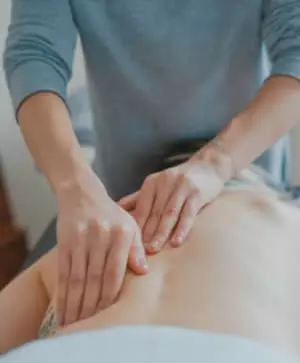
Manual Therapy Skills are an Often Overlooked Aspect of Physical Therapy
In is well documented in journals such as the International Urogynecology Journal and Harvard Medical School that patients see positive outcomes when they receive treatment with trained pelvic floor therapists. One of the most valued skills of a trained pelvic floor therapist is their manual therapy skills.
What is Manual Therapy?
Manual therapy is a clinical treatment approach using skilled, specific hands-on techniques to diagnose and treat soft tissues of the body. Manual therapy is used in a wide variety of rehabilitation settings, on all parts of the body.
- Details
- Written by: Staff
- 7922 Views

Many women experience lower libido, vaginal dryness, sore muscles, and tender skin in the genital area after childbirth.
These issues can make sex uncomfortable, or even unappealing.
Many women are not comfortable bringing up their sex lives to their doctors and midwives, thinking that it “will get better with time.” However, if you find your sexual health impacted for more than a few months after childbirth, you might start to wonder when you’ll be feeling back to normal.
Read more: Common Postpartum Issues That Make Sex Painful - and What...
- Details
- Written by: Staff
- 7427 Views

Do you really know what happens to your hormones during pregnancy? Do you know what hormones are in play during pregnancy?
Well, let’s go through some of the hormones and their functions during pregnancy, so you can have a better understanding of what is occurring in your body.
Read more: What's Happening To Your Hormones During Pregnancy?
- Details
- Written by: Staff
- 5300 Views

As many places in the United States and around the globe are beginning to navigate new realities and daily routines in light of COVID-19, there is undoubtedly a lot of stress, anxiety, and helplessness affecting not only individuals, but our entire global community.
I myself am writing to you on day 7 of a 14 day quarantine and the Los Angeles community is preparing to abide by a “stay at home” ordinance with no definite end date at the time of this blog.
As various studies have shown, mindfulness meditation is an indispensable tool to help soothe stress and anxiety, reduce chronic pain, as well as keep your brain well resourced and healthy. In fact, this study by S. Lazar in 2005 showed that those with a steady, long term meditation practices have more brain matter than those who did not.
Read more: Ways to Keep Calm | Using Mindfulness Meditation in Times...
- Details
- Written by: Staff
- 7350 Views

Greetings!
Today is another blog post to help you connect with resources to help manage the feelings of stress, anxiety, and helplessness in light of COVID 19 and the ways in which our global community is facing this challenge together.
What are Tai Chi and Qi Gong?
Tai Chi and Qi Gong are both ancient Chinese practices which involve slow, mindful movements, meditation, and breathing exercises. Both schools of martial art are low impact and designed to increase circulation, balance, and alignment. In Traditional Chinese Medicine, these practice are also thought to restore energy, otherwise known as chi or qi (pronounced "chee").
Read more: Simple Tai Chi and Qi Gong Exercises to Reduce Stress and...
- Details
- Written by: Staff
- 6186 Views

Many people start like to start the new year off with exercise regimens and plans to lose weight.
Unfortunately, often times women who start exercise programs to lose weight also lose their ability to control of their bladders and experience urine leakage during physical activity, otherwise known as stress urinary incontinence (SUI).
So what makes certain exercises more leak-prone? Which exercises put less stress on your pelvic floor? Read on to find out.
- Details
- Written by: Staff
- 49648 Views

Pelvic pain during the postpartum period is common, even for those who had a “perfect and easy” pregnancy, labor and delivery. Often times, healthcare providers will tell women that the pain “will get better with time,” however it's important to advocate for yourself and seek out care if you feel like you need it. Read my previous article about advocating for your postpartum care here.
Common types of postpartum pelvic pain and what you can do at home:
Vaginal Dryness
After delivery, your estrogen levels drop and progesterone levels stay high, especially if your are breastfeeding.
What you can do:
A simple solution can be drinking more water and using a water-based lubricant, read my previous blog on choosing the right lubricant for you.
Read more: Postpartum Pelvic Pain and What You Can Do About It
- Details
- Written by: Staff
- 20955 Views
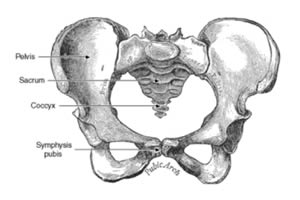
Pain at the pubic bone is also known as pelvic girdle pain
It is a common ailment experienced during pregnancy
In fact, in a study by Mogren (2006), 50% of pregnant women have some type of pelvic girdle pain prior to 20 weeks gestation. The pain can make daily activities like working, walking, and doing chores, painful if not impossible, and can can also negatively affect quality of life and sexual life during pregnancy (Mogren, 2006).
Read more: What to do if You Have Pelvic Girdle Pain (Pubic Symphysis...








